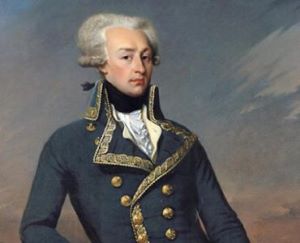citizen

Citizen derives from the Old French, meaning a resident of a town or place. The word gained the notion of political enfranchisement from the American and French Revolutions, especially, with some help from Jefferson, from Lafayette's, “Declaration of the Rights of Man and the Citizen.” One of history's most amusing ironies was the French Ancien Regime provided the funding and navy allowing the American colonials to beat the Brits, and in return we sent them our greatest anti-monarchist.
The modern definition of a citizen as politically enfranchised, overwhelmingly concerns the rights of the citizenry, but not so much their responsibilities. Rights were concretely established, responsibilities rather vague. A half-century ago, the great democratic thinker Hannah Arendt pointed to this flaw in the American constitution stating, “The machinery could not save the people from lethargy and inattention to public business, since the Constitution itself provided a public space only for the representatives of the people, and not for the people themselves.”
It's an interesting comment from two points. First, the framers of the US constitution specifically left the people out of governance. In particular, Madison and Hamilton, while certainly not alone, were entranced by the idea of a noble and right thinking elite, who could act as a counter force to supposed democratic irrational exuberance. The Senate and Supreme Court were instituted specifically for this purpose. One thing the history of these two institutions has proved, again, is there's no such thing as a noble and right thinking elite, nor one shielded from emotionalism and irrationalism.
Madison and Hamilton would have been served well by a closer reading of an earlier republican, Machiavelli, who wrote, “The defect for which writers blame the crowd can be attributed to all men individually and most of all to princes, for each person who is not regulated by the laws will commit the very same errors as an uncontrolled crowd of people.”
Madison, writing an organizational defense for leaving the citizenry out of government, wrongly and most famously states in the Federalists Papers,
“It is in a democracy, that the people meet and exercise the government in person; in a republic, they assemble and administer it by their representatives and agents. A democracy consequently, will be confined to a small spot. A republic may be extended over a large area.”
The republic, the one from which the word is derived, Rome, was as much a participatory democracy as Athens. The Assembly of Rome was made up of the entire citizenry. They directly voted to pass legislation and voted in the administrators. Madison's false dichotomy, and he was not alone, has over the years created all sorts of unnecessary confusion. Republics and democracy are basically the same thing. The biggest difference being the former word is Latin, the latter Greek.
Thirty years after Madison, Jefferson would provide a much more historically accurate and helpful definition,
“It must be acknowledged that the term republic is of very vague application in every language. I would say purely and simply, it means a government by its citizens in mass, acting directly and personally according to rules established by the majority; and that every government is more or less republican, in proportion as it has in its composition more or less of this ingredient of the direct action of the citizens.”
Returning to Arendt's point, with America's constitution the “direct action” of the citizenry was limited to voting. American founder Benjamin Rush succinctly put it, “All power is derived from the people, they possess it only on the days of their elections. After this it is the property of their rulers.” This 18th century incapacity of the citizenry to actively participate in government has grown to be major trouble for 21st century governance.
The second important aspect of Arendt's statement is her description of constitutional government as machinery. On one hand, it is an anachronism. The constitution was very much of the Agrarian Era, not of the newly forming Industrial Age. However, the ways politics evolved in the next two centuries were very much in reaction to the industrial machine.
Most importantly, industrialism manufactured societal specialization. Industry's division of labor so famously portrayed by Adam Smith, also became a division of intellect. This specialization created small groups facilitating anti-democratic control of knowledge and information from which numerous secular priesthoods could profit, imperatively destroying the ability to have a larger whole environment perspective, a shared sense of commonweal.
Yet, industrialism's greatest impact on governance was in how it reshaped the entire society, while government evolved not at all. By the middle of the 20th century, American society was transformed from being overwhelmingly comprised of generalists, independent farmers, to a population of specialized, job holding employees. Agrarian citizens were not specialists, they were generalists, understanding the various niceties of running a small farm, while sharing a set of common concerns of the local community environment they lived. The ability for a worker, a job holder, or for that matter any individual, to grasp the operations and thinking forging a globally influenced industrial society, was not only impossible, more importantly for an economic system valuing specialization, it was worthless.
Politically, the role of the citizen came to resemble that of the consumer. The components of democracy: education on issues, political discussions with fellow citizens, decisions on direction, all shrank to nothing. Instead the industrial manipulations of marketing and advertising became dominant, voting almost an after thought, resulting in a politics of ever increasing dysfunction.

